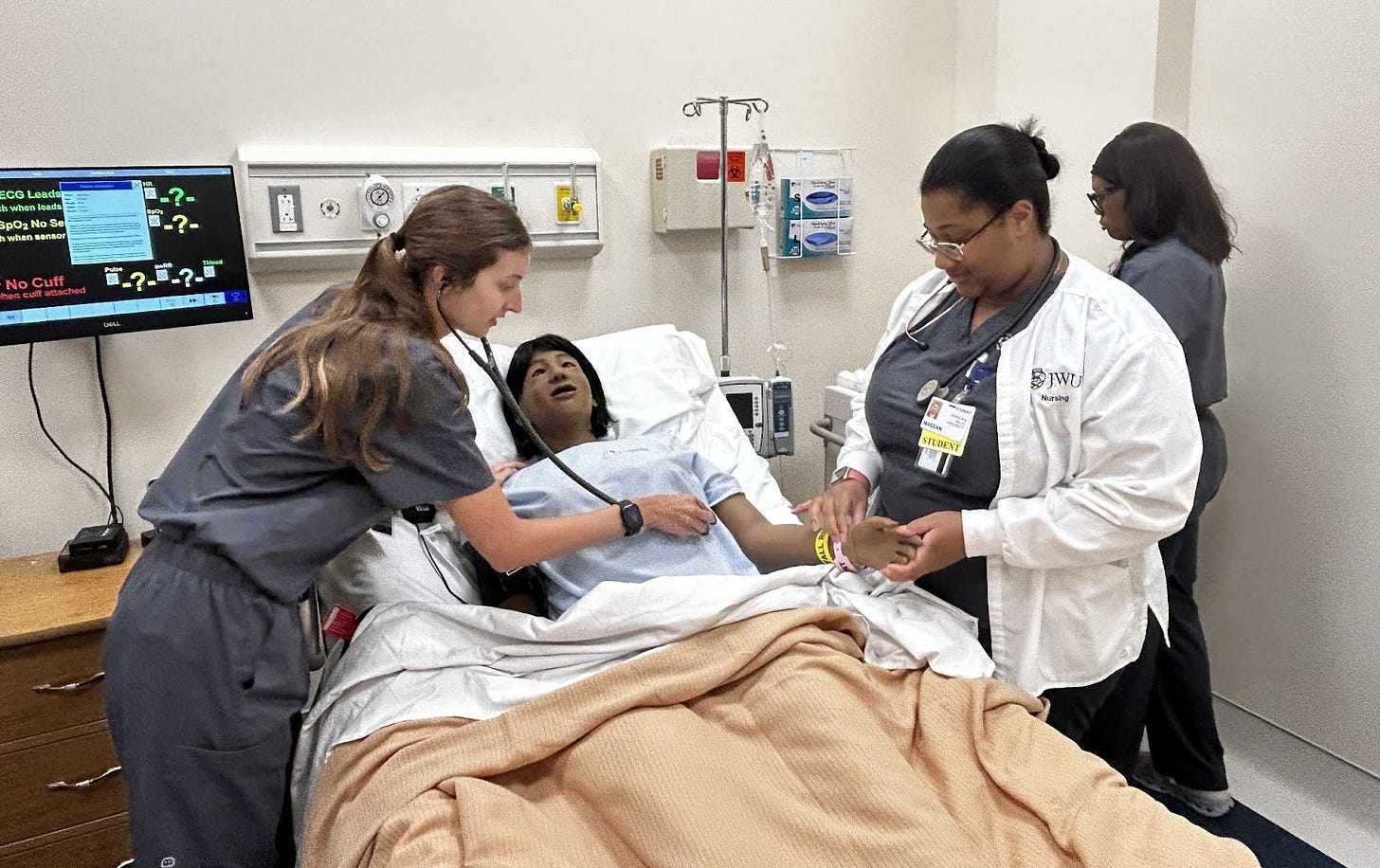Local colleges are ramping up nursing programs to fill a gap
Shortage of 12,500 registered nurses predicted in North Carolina by 2033
The following article appeared in the Aug. 7, 2024, edition of The Charlotte Ledger, an e-newsletter with smart and original local news for Charlotte. We offer free and paid subscription plans. More info here.
With care shortage growing, local colleges are expanding programs and cranking up new ones designed to get as many nurses into the workforce as quickly as possible
ROBO-PATIENT: Johnson & Wales University nursing students (L-R) Murphie Efird, Maegan Lord and Jessica Nichols complete an assessment on “Ann,” a high-tech simulator that can mimic medical conditions.
by Cristina Bolling
Jessica Nichols emerged from college with a bachelor’s degree in communications with her sights set on a broadcast journalism career. But after spending six years in the U.S. Army and becoming a mom, she felt called to an entirely different work path — nursing.
Now, Nichols is one of seven students in Johnson & Wales University’s new nursing program that started in May on the Charlotte campus. If all goes according to plan, she’ll be eligible to sit for her registered nurse licensure exam in August 2025 and get a job in the specialty that most interests her: pediatric psychiatry.
Nichols, 29, and her six Johnson & Wales classmates have all already earned bachelor’s degrees, so they’re on what the industry calls an “accelerated” training path, which means a speedier process that involves only nursing-focused coursework.
Once they’ve got their credentials in hand, they’ll be in high demand.
Experts predict a shortfall of 12,500 registered nurses in North Carolina by 2033. Nurses were already leaving the profession in droves before Covid, and the pandemic accelerated the problem. That’s compounded by a shortage of nurse educators, which makes ramping up the next generation more difficult.
Keep reading with a 7-day free trial
Subscribe to The Charlotte Ledger to keep reading this post and get 7 days of free access to the full post archives.



